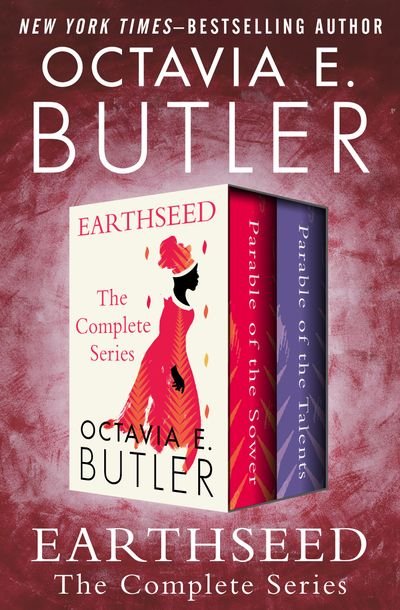Alone Together: The Magic of Shared Reading—Part 1
I joined a book discussion last month through the Democratic Party’s Global Women’s Caucus. The book we all read is an iconic text—Parable of the Sower by Octavia Butler, which I’ve focused on earlier in this blog. The first of the trilogy, it was published in 1993, and behold! The years that it’s set in have become our present.
“The wall before me is burning. Fire has sprung from nowhere, has eaten in through the wall, has begun to reach toward me, reach for me.”
Fire dreams feel like the reality of our time. (For more on a fictional depiction of fire in our pyrocene age, see Caroline Starr Rose’s reflections on her novel, The Burning Season.) But fire is just one of the elements that make Butler’s work feel astonishingly prescient.
One thread we discussed was the struggle between the comforts and costs of living in the modern industrial world. The protagonist, Lauren Olamina, dreams of the stars:
“The Destiny of Earthseed is to take root among the stars,” I said. “That's the ultimate Earthseed aim, and the ultimate human change short of death. It's a destiny we’d better pursue if we hope to be anything other than smooth-skinned dinosaurs—here today, gone tomorrow, our bones mixed with the bones and ashes of our cities, and so what?”
In reality, look how that dream, which feels so boldly innocent in Butler’s telling, has now been coopted by shamelessly rich men toward their own selfish ends. Men, all, which makes me think of the gender roles in Butler’s world. There, Lauren breaks through the barriers of traditional roles in a society that requires hypermasculinity for survival. Into the 1990s when Butler published this book, space travel felt like a human endeavour, even a noble one. Today, in contrast, I sometimes feel repulsed by the whole project.
Then there’s water and the access to water. On the run, the group goes to a water station, not finding any freeway watersellers. In our reality, we’ve been talking for decades about the possibility of water wars. Tensions about water hover over California and the American southwest while the president (Trump, but could have been Donner!) makes a mindlessly malicious gesture of releasing water from northern California and then lies about it.
Inevitably, there’s natural disaster folded into the mix. Just as we are living in dreams and ideals the power of the earth strikes in the shape of an earthquake. The planet, we’re reminded, won't stop planeting just because we're in existential crisis.
One of the women in the group pointed out that Butler was a writer and a superb one at that—of course she’d take the reality she knew in 1993 and extrapolate from it to create this world. Of course, she knew how. It’s what sci-fi writers do. The surprises are when she pushes beyond the borders of realism. We agreed that the empathy thread was one of those.
“So when you hit that guy,” she said, “It was like you hitting yourself.”
“No,” I said. “I don’t get the damage. Just the pain.”
Along the same lines, some of us accepted the religious storyline, others pushed back against it. For me the really powerful idea here is that a human vision of the divine can align with the laws of nature. And truly, this line made me laugh out loud, it felt so tailor-made for now:
“Do we have to join your cult if we travel with you?”
As Anand Giridharadas said on a recent Substack video, “Just because we happen to be living through a hijacking it doesn't mean that I love their destination. I refuse to give them the story they want.”
Whatever we might want, what Butler gives us are cautionary eruptions of story all over this landscape. Here’s a snatch of dialogue about the “borderworks” where workers make goods for companies in Canada or Asia:
“They were supposed to provide jobs for that northward flowing river of people. President Donner’s all for them. The workers are more throwaways than slaves. They breathe toxic fumes or drink contaminated water or get caught in unshielded machinery. … It doesn't matter. They're easy to replace—thousands of jobless for every job.”
Despite the grimness, of which there’s plenty in the book and in this moment of ours, I felt curiously uplifted—emotionally, that is to say, not talking plate tectonics here. It felt great to talk about this book with a bunch of interesting, knowledgeable American women living in places around the world. I pass that along for what it’s worth. Read a book. Talk about it.
Stories connect us. Here’s to finding hope in shared texts, in this shattered and shattering time.
